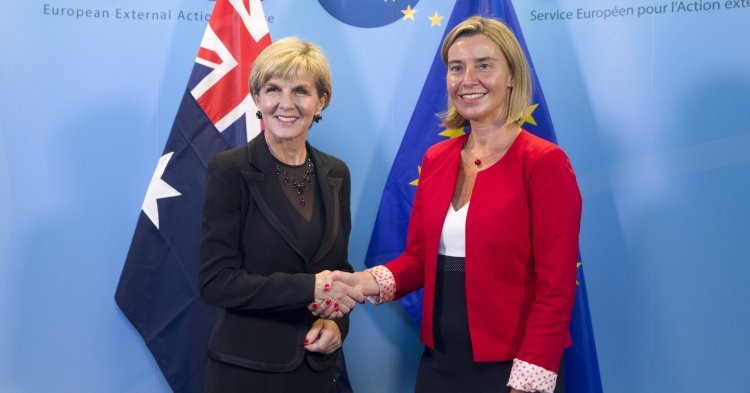Its far-flung location has not stopped it from notching a top ten placing in four out of the five times it has participated in the competition – and therefore, reasoned the European Council, why shouldn’t it take the logical next step of becoming a fully-fledged member state?
Negotiations for a free trade deal with Australia were launched in 2018 and were expected to be long and arduous. However, this was before Aussie singer Kate Miller-Heidke impressed European viewers, voters and negotiators with “Zero Gravity” in the 2019 contest.
“We anticipate that Kate’s performance will greatly speed up the necessary harmonisation between Australian and European standards in certain areas of trade,” incoming Commissioner for trade Phil Hogan assured us. “After all, it was a particularly harmonious spectacle.”
The most recent Eurostat poll indicates that Europeans are broadly in favour of Australian accession, on the condition that a certain number of attractive surfing folk are made to relocate to Europe immediately. It is hoped that Australian will quickly become an official language of the EU so that interpreters can be hired to translate the cheerful, incomprehensible drawl into one of the existing official languages.
The benefits for trade are expected to be huge – with Sydney being 10 hours ahead of Brussels, it is anticipated that goods could arrive from Australia before they are even ordered in Europe.
Stringent checks on goods will remain, however. “Not on the goods themselves,” Hogan added. “Of course we are fully confident that our friends Down Under will be able to stop producing everything upside down – including Foster’s beer for Europe’s many awful student bars. The checks will just be to ensure that no poisonous spiders come in with the cargo.”
And what if a few pesky arachnids do sneak into the shipping containers? Surely that could risk disrupting biodiversity on our continent and even endangering people there? “Absolutely not,” Hogan responded confidently. “We have already made a plan to divert such containers to the UK. Furthermore, there is a clause to allow for this in the most recent Brexit deal – further proof, as if we needed it, that the UK government has not read it.”


Follow the comments: |
|
